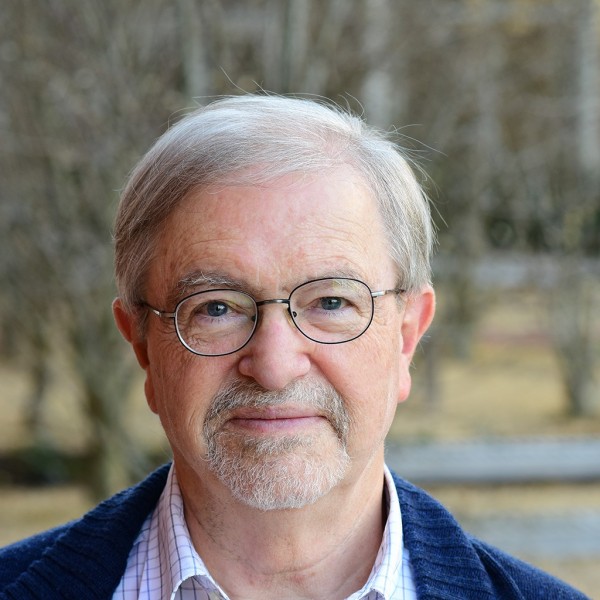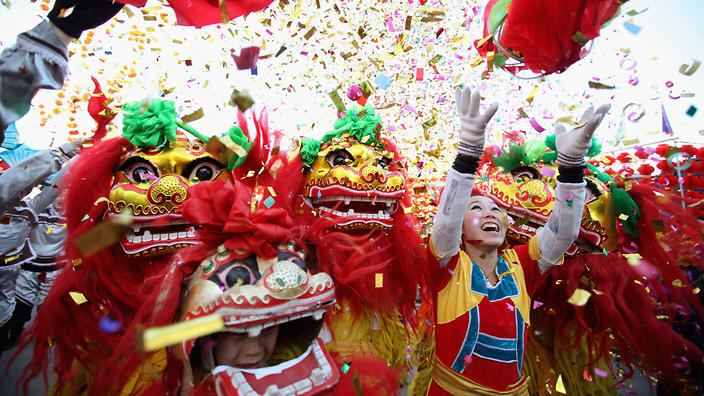Vietnam: Epilogue to an Endless War
 Vietnam, one of the world's fastest developing countries, has taught us lessons about reconciliation and recovery, explains Brantly Womack. Womack is the C.K. Yen Chair at UVA's Miller Center and professor of foreign affairs in the Department of Politics in the College and Graduate School of Arts & Sciences at the University of Virginia.
Vietnam, one of the world's fastest developing countries, has taught us lessons about reconciliation and recovery, explains Brantly Womack. Womack is the C.K. Yen Chair at UVA's Miller Center and professor of foreign affairs in the Department of Politics in the College and Graduate School of Arts & Sciences at the University of Virginia.
Vietnam, one of the world's fastest developing countries, has taught us lessons about reconciliation and recovery, explains Brantly Womack. Womack is the C.K. Yen Chair at UVA's Miller Center and professor of foreign affairs in the Department of Politics in the College and Graduate School of Arts & Sciences at the University of Virginia.
VIETNAM: EPILOGUE TO AN ENDLESS WAR
In February Dan Kritenbrink, U.S. Ambassador to Vietnam and UVA alumnus (MA Foreign Affairs), performed a rap in Hanoi celebrating Tet, the Vietnamese New Year. It went viral. As Kritenbrink pointed out in a webinar hosted by the UVA East Asia Center the following month, America and Americans are very popular in Vietnam. Vietnam’s Ambassador Ha Kim Ngoc did an encore with us in April (though without music) in which he praised the positive developments in the strategic partnership between the United States and Vietnam.
Vietnam is one of the fastest developing countries in the world and was second only to New Zealand in successfully coping with COVID. They succeeded against the pandemic because of good leadership and community solidarity. About the same percentage of Vietnamese view their country as democratic as do the Taiwanese. Vietnam is a leader in the Association of Southeast Asian Nations (ASEAN) and has an arms-length relationship with its neighbor, China.
Almost fifty years earlier, the actress Jane Fonda visited Hanoi and was condemned as a traitor by many Americans. We were in the throes of our withdrawal from Vietnam, and that year we bombed the cities and river dikes of North Vietnam in order to force them to accept our terms. That “surge” did not work, and by 1975 the Communists overwhelmed our Saigon allies and unified Vietnam. Cambodia and Laos soon fell, and the Soviet Union and China celebrated the victory of their ally. To us, “Vietnam” had been our longest war to date, and the war had been lost. Afterward, we heard little about Vietnam, the place.
The Vietnamese like us now because they no longer feel threatened by us. The war, which they call the “American war,” caused two and a half million deaths, three percent of which were American soldiers. As Kritenbrink pointed out, the things the Vietnamese appreciate about Americans now are the efforts of our veterans groups to support schools and our government’s assistance to victims of Agent Orange.
President Biden has announced that he plans to end our new “longest war” in Afghanistan by September, and many are concerned about what will happen next. The only sure losers will be its casualties and the people who counted on us to win. The Saigon government lasted only two years after our withdrawal, and hundreds of thousands left Vietnam. But Vietnam as a whole is better off because we left, and our relationship is better because we are not threatening them. The children of those who left are now reconnecting.
Perhaps the most basic lesson of Vietnam, the war, is that violence is the problem, not the solution. And now the lesson of Vietnam, the country, is that reconciliation and recovery are possible.

- Guastavino Tile at the University of Virginia
- Abraham Lincoln on Character, Leadership and Education
- Silence is Golden: Celebrating the History of Silent Films
- UVA Club of Atlanta: Women's ACC Basketball Tournament - UVA Fan Events
- UVA Northern Virginia Programs Fair
- UVA Club of Los Angeles: Influential Communication